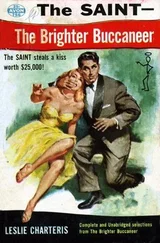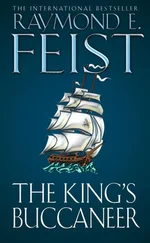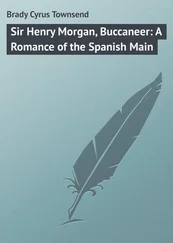Rolf Boldrewood - A Modern Buccaneer
Здесь есть возможность читать онлайн «Rolf Boldrewood - A Modern Buccaneer» — ознакомительный отрывок электронной книги совершенно бесплатно, а после прочтения отрывка купить полную версию. В некоторых случаях можно слушать аудио, скачать через торрент в формате fb2 и присутствует краткое содержание. ISBN: , Жанр: foreign_antique, foreign_prose, на английском языке. Описание произведения, (предисловие) а так же отзывы посетителей доступны на портале библиотеки ЛибКат.
- Название:A Modern Buccaneer
- Автор:
- Жанр:
- Год:неизвестен
- ISBN:http://www.gutenberg.org/ebooks/35431
- Рейтинг книги:3 / 5. Голосов: 1
-
Избранное:Добавить в избранное
- Отзывы:
-
Ваша оценка:
- 60
- 1
- 2
- 3
- 4
- 5
A Modern Buccaneer: краткое содержание, описание и аннотация
Предлагаем к чтению аннотацию, описание, краткое содержание или предисловие (зависит от того, что написал сам автор книги «A Modern Buccaneer»). Если вы не нашли необходимую информацию о книге — напишите в комментариях, мы постараемся отыскать её.
A Modern Buccaneer — читать онлайн ознакомительный отрывок
Ниже представлен текст книги, разбитый по страницам. Система сохранения места последней прочитанной страницы, позволяет с удобством читать онлайн бесплатно книгу «A Modern Buccaneer», без необходимости каждый раз заново искать на чём Вы остановились. Поставьте закладку, и сможете в любой момент перейти на страницу, на которой закончили чтение.
Интервал:
Закладка:
I found that the custom of morning and evening prayers was never neglected in any Samoan household; for, whether the Samoans are really religious or no, they keep up a better semblance of it than many who have whiter skins.
That night George, who by the way was called Tuluia by his wife and daughters, made plans for our future. As we sat talking the others retired to a far corner, where they sat watching us, their big dark eyes dilated with interest. We agreed to buy a boat between us and make trading trips to the windward port as far as Aleipata. Then after smoking a number of "salui" or native cigarettes, we turned in.
All next day we were incommoded by crowds of inquisitive visitors, who came to have a look at me and learn why I had come to Samoa – George having told them merely that I was his "uo," or friend, treated most of them with scant courtesy, explaining that the natives about Apia are thorough loafers and beggars, and warning me not to sell any of them my "trade" unless I received cash in return. In the afternoon I landed my effects, but could scarcely get into the house for the crowds.
George's wife, it appeared, had been so indiscreet as to tell some of her relations that I had rifles for sale; as a consequence there were fully a hundred men eager to see them. Some had money, others wanted credit, others desired loose powder, and kept pointing to a shed close by, saying, "Panla pana fanua" (powder for the cannon). I discovered that under the shed lay a big gun which Patiole and Asi, two chiefs, had bought from Captain Hayston for six hundred dollars, but had run out of ammunition.
I had no powder to sell, but George found me a cash buyer for one of my Winchesters at seventy-five dollars. I could have sold the other three for sixty dollars each, but he advised me to keep them in order to get a better price up the coast. It was just on the eve of the second native war, so the Samoans were buying arms in large quantities. From some Californians' trading vessels they had brought about three hundred breech-loaders, and Hayston had sold them the cannon aforesaid, which he had brought from China in the Leonora .
The chief, Malietoa, had an idea of carrying the war into the enemy's country. His plan was to charter a vessel, and take five hundred men to Tuvali, the largest island in the group. Hayston had met a deputation of chiefs, and told them that for a thousand dollars he would land that number of Malietoa's warriors in any part of the group. Moreover, if they gave him ten dollars for every shot fired, he would land them under cover of four guns. But they were not to bring their arms, and were to arrange to have taumualuas, or native boats, to meet the brig off the coast and put them on board. This, he explained, was necessary to prevent the vessel being seized if they met a man-of-war, and so getting him into serious trouble.
The chiefs took this proposition in eagerly at first, but, on thinking it over, suspicions arose as to their reaching their destination safely; and, finally, after the usual amount of fawning and flattering, in which every Samoan is an adept, they told Hayston that they could not raise sufficient money, and so the matter ended.
The following months of my sojourn in Samoa passed quickly. George and I bought a cutter in which we made several trips to the windward villages, whence we ran down to the little island of Manono, situated between Upolu and Savaii. There we did a good business, selling our trade for cash to the people of Manono, and buying a cargo of yams to take to Apia, to sell to the natives there, who were short of food owing to the outbreak of hostilities.
On our way up we took advantage of a westerly wind, and made the passage inside the reef, calling at the villages of Multifanna and Saleimoa – visiting even places with only a few houses nestling amongst the cocoa-palms.
We left Saleimoa at dusk, and although we were deeply laden, we made good way. Whilst at the village I heard that a large Norwegian ship laden with guano had put into Apia, having sprung a leak and run short of provisions; also that there was not a yam to be had in the place. Our informant was a deserter from a man-of-war, living at Saleimoa. He had been tattooed, and was a thorough Samoan in appearance, but was anxious to get a passage to New Britain, being afraid to remain longer in his present quarters. He was known as "Flash Jack," and was held to be a desperate character. After a few drinks he became communicative, telling me certain things which he had better have kept to himself. He informed me that he intended to ship with Hayston, whose brig was expected daily with a hundred recruits for Goddeffroy and Sons' plantations. He advised me to keep my yams until the Leonora's cargo of "boys" arrived, as the Germans would pay me my own price for them, being short of food for their plantation labourers. In another few minutes Jack was drunk, and wanted to fight us, when two of his wives came on board, and after beating him with pieces of wood, carried him on shore and laid him in his bunk.
I determined, however, to take his advice about the yams, and was cogitating as to the price I should ask for them, when George, who was steering, called my attention to two "taumualuas" full of men, paddling quickly in from sea through an opening in the reef.
Not apprehending danger we kept on. Our boat was well known along the coast by the Tua Massaga or Malietoa faction, and we merely supposed that these boats were coming down from Apia to the leeward ports. It was a clear night; George called out the usual Samoan greeting, used when canoes meet at night. The next moment we saw them stop paddling, when, without a word of warning, we received a volley, the bullets striking the cutter in at least twenty places. How we escaped is a mystery. George got a cut on the shoulder from a piece of our saucepan, which was lying against the mast. It flew to pieces when struck, and I thought a shell had exploded.
Flinging ourselves flat on the deck, George called out to the canoes, which were now paddling quickly after us, and told them who we were, at the same time lowering our jib and foresail. The taumualuas dashed up, one on each side. Luckily some of the warriors instantly recognised us. They expressed great sorrow, and explained that they had mistaken us for a boat bringing up a war party from Savaii.
Every man was armed with a rifle, mostly modelled on the German needle-gun, and as they were all in full fighting costume they had a striking and picturesque effect. After mutual expressions of regard and a general consumption of cigarettes, we gave them a bottle of grog to keep out the cold night air, sold them some cartridges from my own private stock, and with many a vociferous "To Fa," we sailed away, and left them in the passage waiting for the expected invaders.
CHAPTER IV
SAMOA TO MILLÉ
Just as we parted from our warlike friends who had so nearly put an end to our cruises, one of the chiefs sang out that a large brig, painted white, was out at sea beating up to Apia. Turning his information over in my mind, the conviction grew upon me that she must be Hayston's vessel, the Leonora . It proved to be correct, for as we ran past Mulinu Point we saw her entering the passage leading to the harbour. She was about a mile distant from us, but I could see that she was a beautifully-built vessel, and could well believe the tales of her extraordinary speed. The Norwegian guano-man, an immense ship, the Otto and Antoine , was lying in the roadstead, and as the Leonora came to her moorings, we ran up between the two vessels and dropped anchor.
During the next few minutes I received no less than three different offers for our sixteen tons of yams. These I declined, and after waiting till I perceived that most of the shore visitors had left the brig, I took our dingey and pulled aboard.
Читать дальшеИнтервал:
Закладка:
Похожие книги на «A Modern Buccaneer»
Представляем Вашему вниманию похожие книги на «A Modern Buccaneer» списком для выбора. Мы отобрали схожую по названию и смыслу литературу в надежде предоставить читателям больше вариантов отыскать новые, интересные, ещё непрочитанные произведения.
Обсуждение, отзывы о книге «A Modern Buccaneer» и просто собственные мнения читателей. Оставьте ваши комментарии, напишите, что Вы думаете о произведении, его смысле или главных героях. Укажите что конкретно понравилось, а что нет, и почему Вы так считаете.












